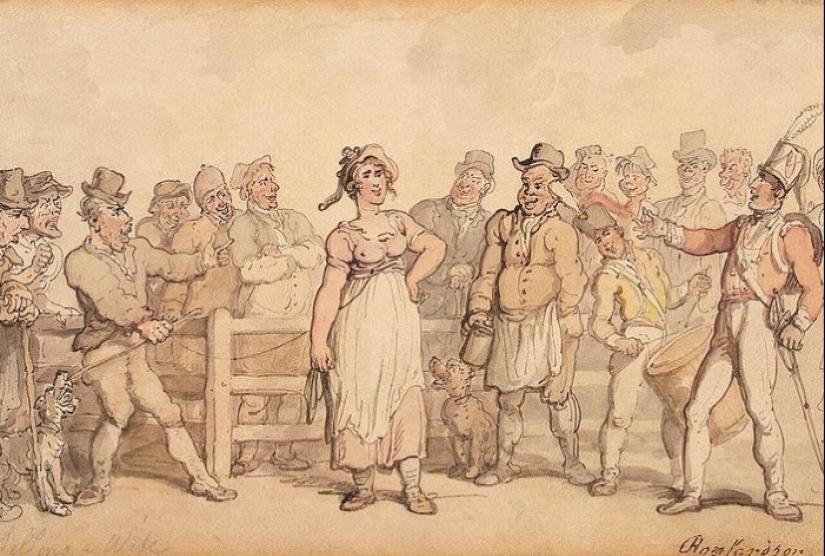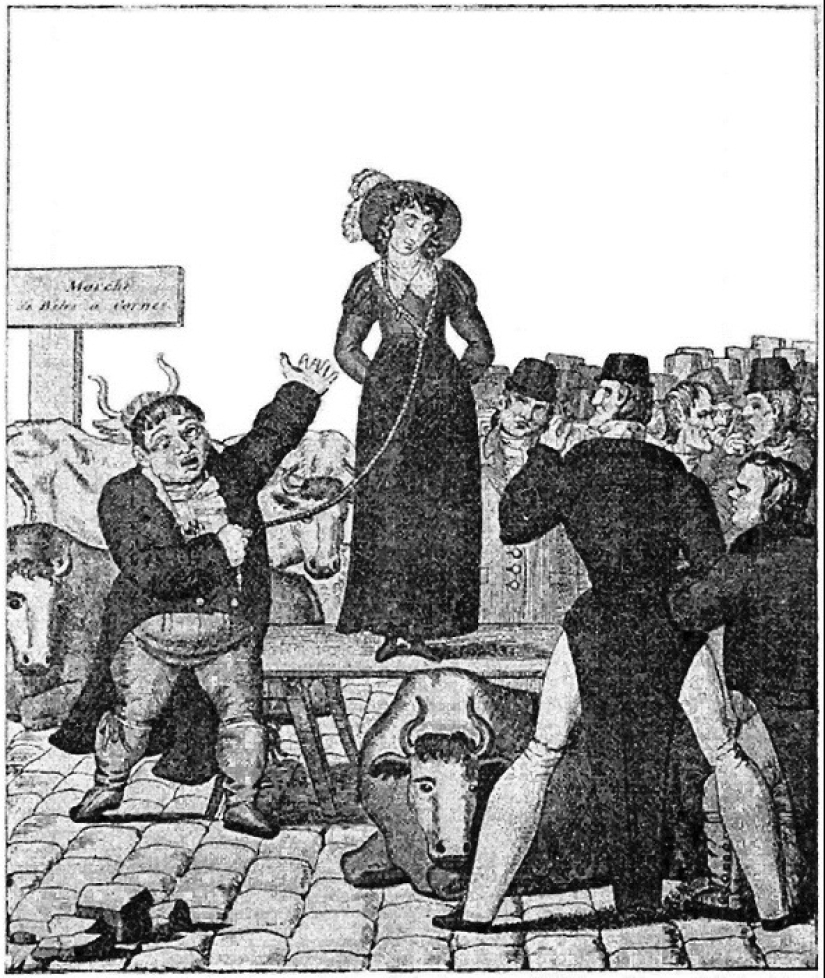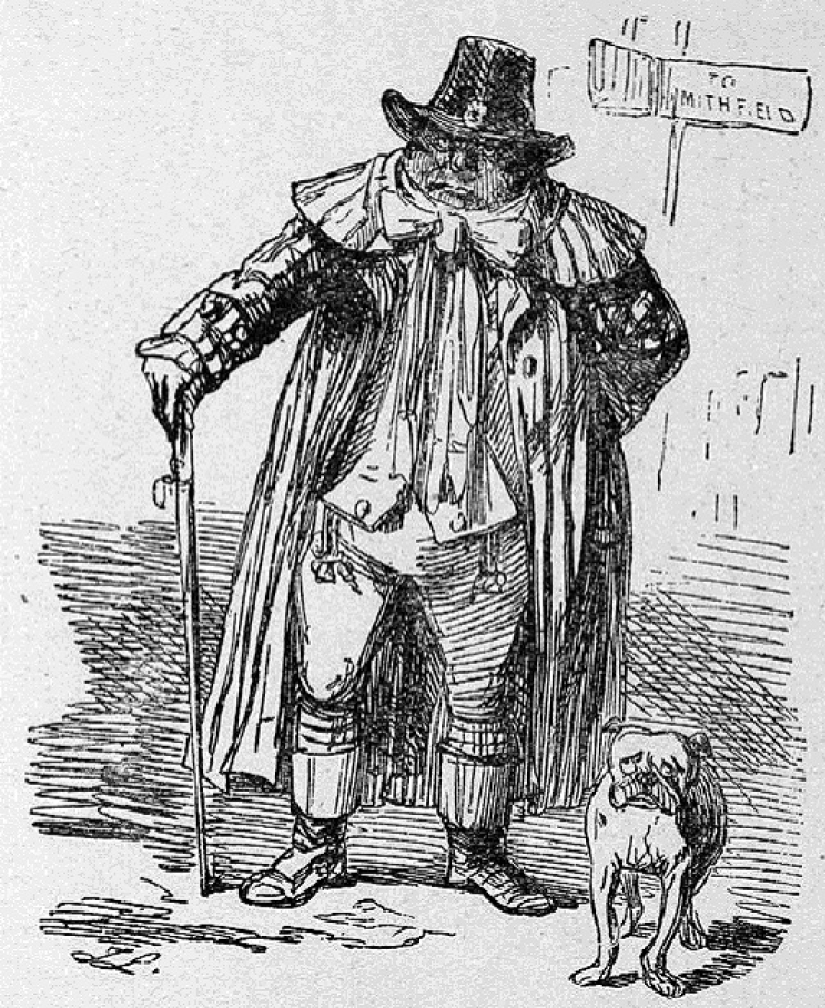In nineteenth-century England, divorce was expensive. Therefore, the wives were sold at auction
Now just try to infringe on a woman's rights — feminists will break their horns in a moment. But in the old days things were different. After marriage, the ladies, in fact, became the property of their husbands. And they did whatever they wanted. In England, for example, when wives got bored, the spouses could simply sell them. Moreover, we are not talking about the dense Middle Ages, but about the XVIII-XIX centuries.

The procedure was arranged according to the auction principle. The husband brought his wife to the square, holding the leash, the woman went up to the stage, and the bidding began. The lady went to the one who offered the highest price. Such an event is described in colors in Thomas Hardy's novel "The Mayor of Casterbridge", written in 1886. The main character sells his wife, after which the pangs of conscience drive him to the grave.
A French engraving of 1820 about the sale of wives in England.
One of the earliest recorded sales took place in 1733, which is known for certain due to the fact that newspapers actively covered such events. A certain Samuel Whitehouse auctioned off his faithful Mary Whitehouse for one pound sterling. The buyer, Mr. Griffiths, had to "accept a woman with all her flaws."
Another spouse was put up for sale with an initial price of one penny. It's no wonder that lonely farmers almost got into a fight, wanting to get it. In the end, they agreed on five shillings and sixpence.
An English nobleman heading to Smithfield Market with the goal of becoming a bachelor and earning some money at the same time.
In most cases, the wife was sold by mutual consent. Usually the spouse was bought by her lover for a nominal fee. It often happened that after the auction, all three went to the nearest tavern to mark the deal. In 1830, a funny episode happened in Manchester. The man started bidding, but then suspended them, deciding to leave everything as it is. To this, his wife slapped his cheeks with an apron and exclaimed: "I have to be sold, I want a change!"

A French engraving of 1820 about the sale of wives in England.

This practice was most popular in the period from 1780 to 1850. And it all started with the fact that in England in 1753 the Law on Marriage was adopted (until that moment, unions of men and women were not registered). After the law came into force, an official divorce became a very expensive pleasure, only wealthy people could afford to dissolve a marriage. And selling wives on the square has become the easiest way to get rid of each other. The authorities did not approve of this, but almost always turned a blind eye.

An English nobleman heading to Smithfield Market with the goal of becoming a bachelor and earning some money at the same time. In most cases, the wife was sold by mutual consent. Usually the spouse was bought by her lover for a nominal fee. It often happened that after the auction, all three went to the nearest tavern to mark the deal. In 1830, a funny episode happened in Manchester. The man started bidding, but then suspended them, deciding to leave everything as it is. To this, his wife slapped his cheeks with an apron and exclaimed: "I have to be sold, I want a change!"
Recent articles

It's high time to admit that this whole hipster idea has gone too far. The concept has become so popular that even restaurants have ...

There is a perception that people only use 10% of their brain potential. But the heroes of our review, apparently, found a way to ...

New Year's is a time to surprise and delight loved ones not only with gifts but also with a unique presentation of the holiday ...